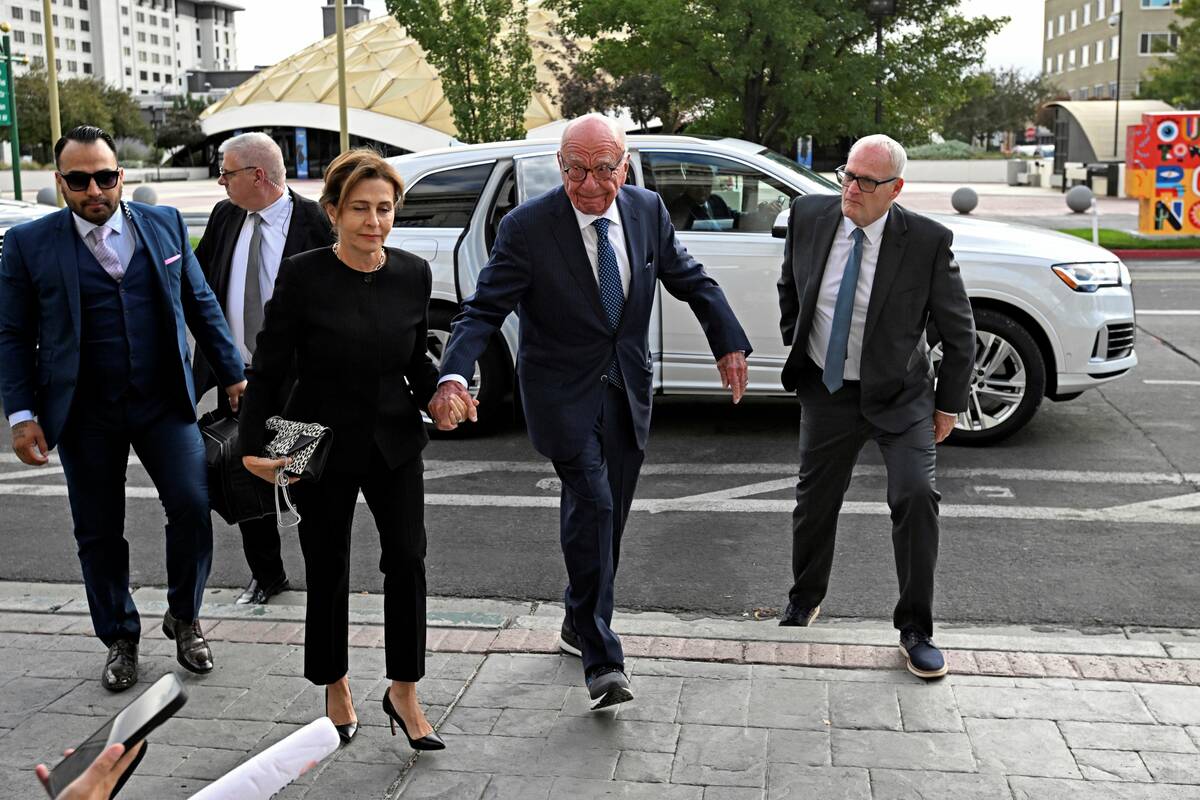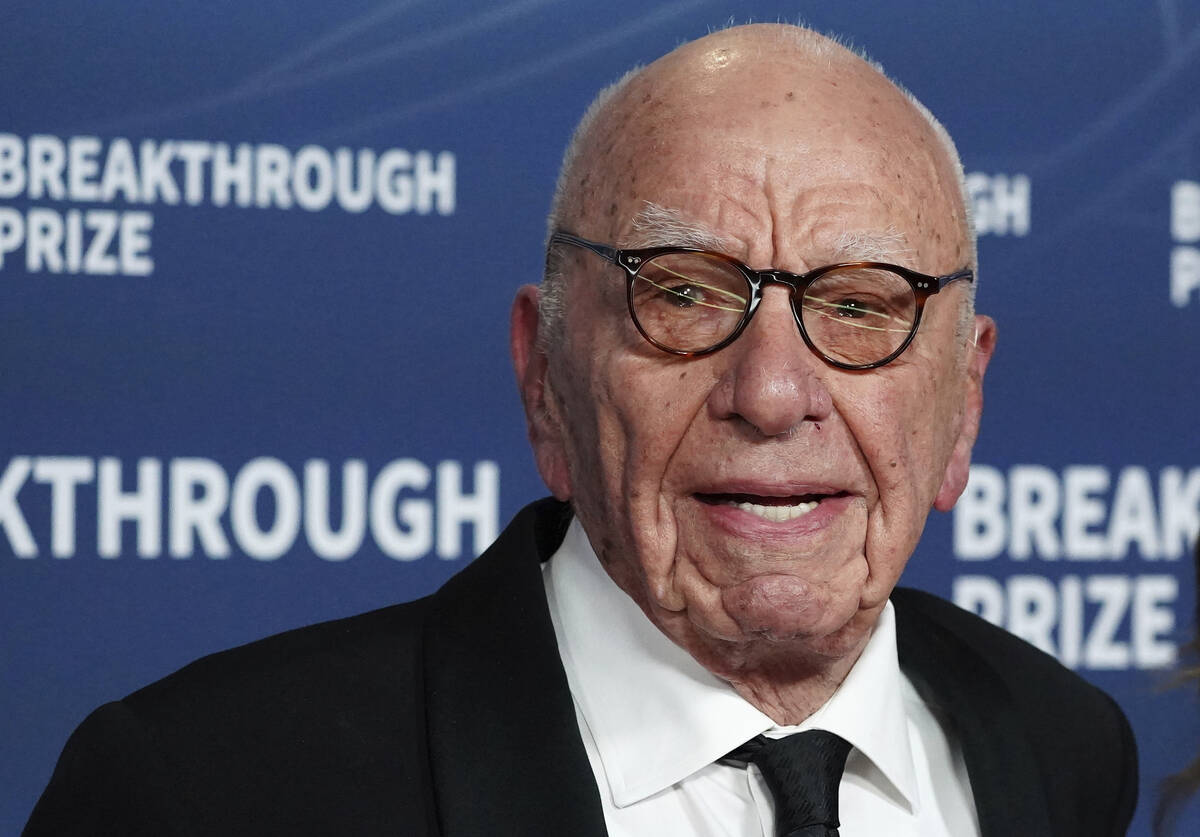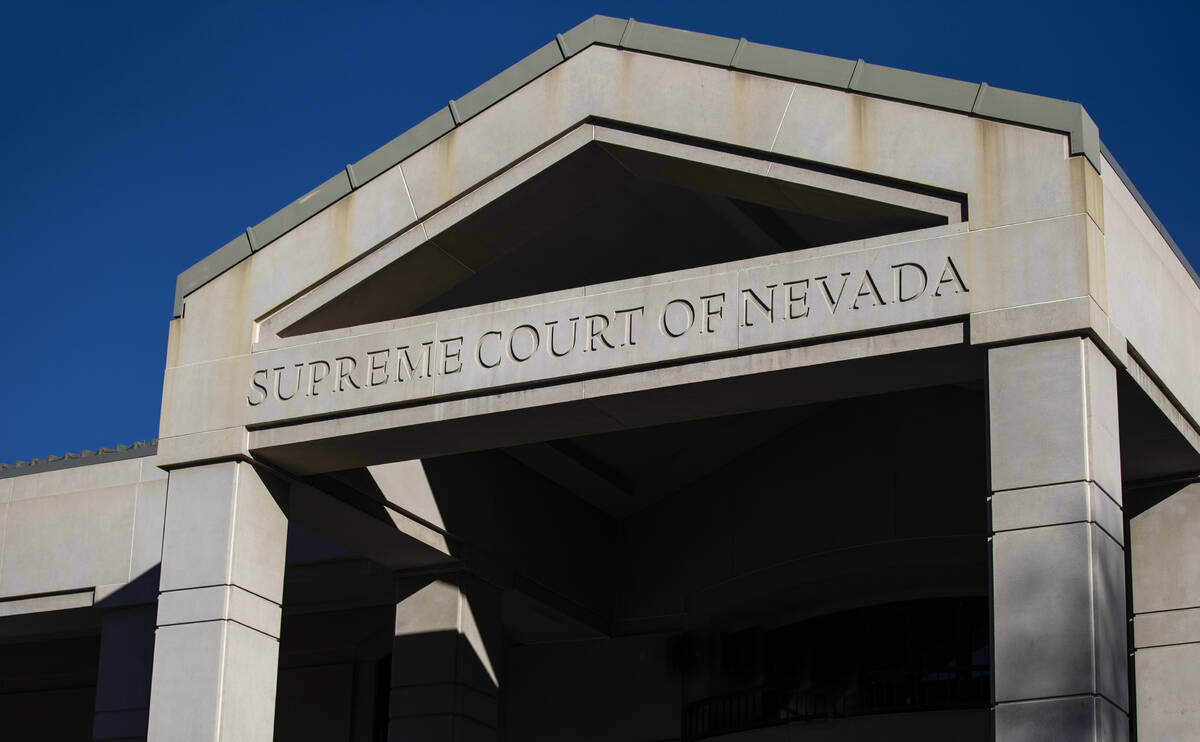Attorneys argue Murdoch family media empire case in Nevada
A Nevada Supreme Court justice said Wednesday the public has a “vested interest” in the powerful Murdoch family’s secrecy-cloaked court case on the future of its media holdings.
During oral arguments in Carson City, in a case launched by several big news organizations, albeit none led by the Murdochs, Justice Patricia Lee asked about ensuring fairness in the proceedings and making sure wealth and power don’t influence the case.
She posed the questions to attorney Jordan Smith, who told the high court that he represents a client he named only as “Doe 9” and that the Nevada Legislature “designated broad categories of information as confidential relating to trusts.”
“The public, I think, really does have a vested interest in what’s going on in this case, just like any other civil proceeding,” Lee said.
The billionaire Murdoch family — led by 94-year-old media mogul Rupert Murdoch — controls such outlets as Fox News and The Wall Street Journal. Their court case in Nevada, however, was revealed publicly by The New York Times, which reported last July that Rupert Murdoch was in a secret legal battle against three of his children over the future of the family’s media empire.
‘Closed to the public’
Under Nevada law, in court proceedings over a trust or estate, parties involved can ask the court to seal a range of trust-related documents, including accounts, inventories, court orders and trust instruments themselves.
The New York Times, The Associated Press, NPR, CNN, The Washington Post and Reuters teamed up to intervene in the case in Washoe County District Court, seeking to open all records and proceedings to the public.
Washoe County Probate Commissioner Edmund Gorman recommended that certain redacted records be unsealed but that access to hearings be denied.
“All hearings in this case shall remain closed to the public and to the media,” he wrote.
Washoe County District Judge David Hardy issued an order for enforcement of the recommendations.
Maggie McLetchie, an attorney for the news groups, wrote in a court filing with the Nevada Supreme Court that whoever controls Rupert Murdoch’s companies, legacy and $20 billion fortune “is a matter of immense public interest,” and that the succession “will affect thousands of jobs, millions of worldwide media consumers, and the American political landscape.”
She also argued that until The New York Times broke the news of the case, the lower court “went to extraordinary lengths to shroud every single piece of information about the case—even its existence and a prior order sealing the case—in perpetual secrecy.”
Attorneys for “Doe 9” responded in court papers, in part, that “providing public access to trust proceedings would undermine the very purpose of those proceedings: distributing assets outside of probate (and the public eye).”
‘Political and media landscape’
McLetchie — a First Amendment attorney who has represented the Las Vegas Review-Journal in legal matters — told the high court on Wednesday that nothing in state law governing family trust companies grants an absolute right to privacy in such cases.
She also argued that there is particular public interest in this case “because of the role of the Murdochs and their prominence in the national political and media landscape.”
Smith, meanwhile, argued that presumption of access “does not apply to trust proceedings” and that the statutes involved in the case are not a privilege for the rich and famous.
Anyone in Nevada with a trust proceeding can invoke them, whether they have legal counsel or “drafted their trust with LegalZoom,” he said, referring to a do-it-yourself site.
Contact Eli Segall at esegall@reviewjournal.com or 702-383-0342.





















